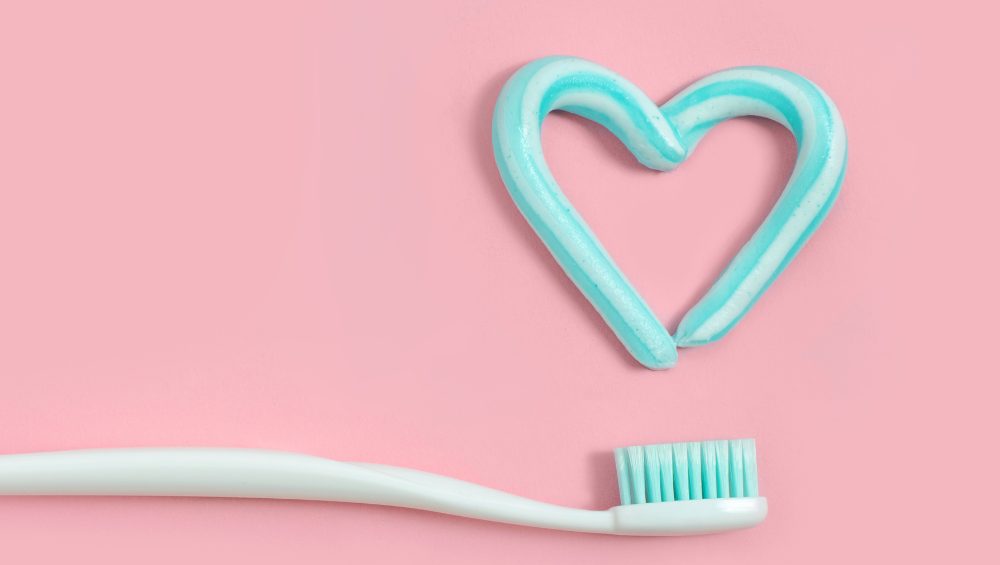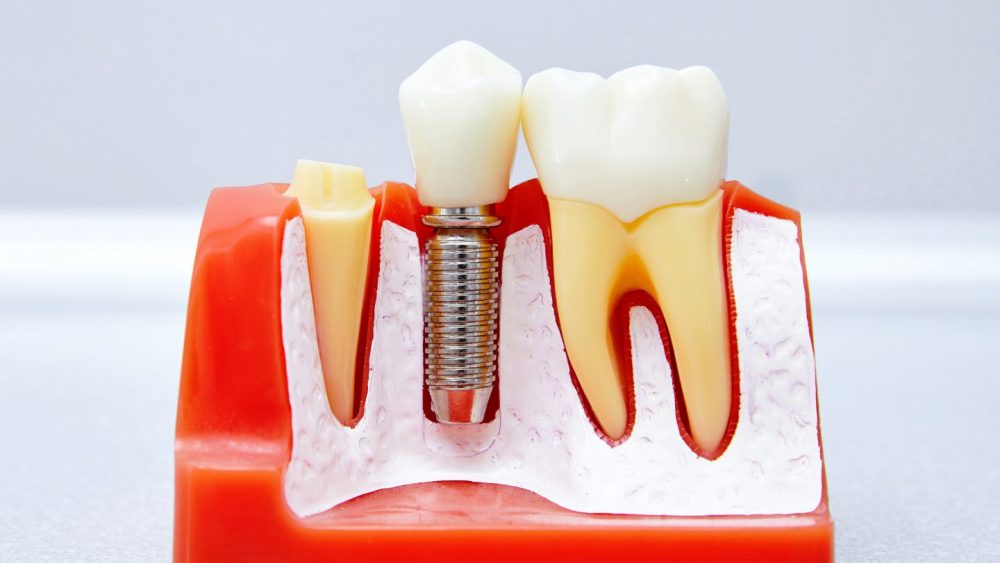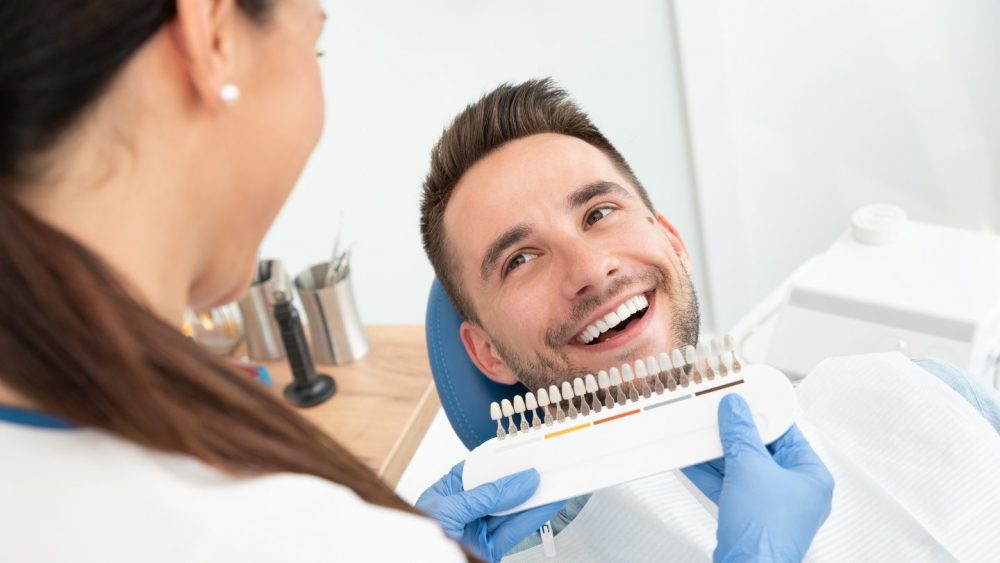
How Dental Health Can Impact Your Heart?
January 25, 2023
Dental Implants: What You Should Know
February 25, 2023Key Takeaways:
Various Whitening Options:
Dentists offer treatments beyond over-the-counter strips, such as UV light or laser whitening, tailored to specific staining types (extrinsic vs. intrinsic).
Temporary Results:
Whitening effects are not permanent; touch-ups are required, and avoiding staining foods and drinks can help maintain results.
Personalized Treatment:
Results vary based on individual factors like overall oral health, and whitening only works on natural teeth, not crowns, veneers, or implants.
Nothing conveys confidence like a gleaming, bright smile. Whitened teeth have become the most sought-after accessory. As cosmetic dentists, people often ask us about tooth whitening or, more specifically, about types of professional teeth whitening options.
Please remember that this advice doesn’t substitute consultation with a dentist. We hope it increases your awareness of the options and why it is important to seek professional whitening.
1. The benefits of Tooth Whitening
If you are thinking about tooth whitening, you already know the benefits. They include:
- An improved, often more youthful-looking appearance since people associated stained or discolored teeth with aging.
- The confidence from knowing your smile looks its best.
- Removal of some types of stains like coffee stains.
2. There are Multiple Types of Teeth Whitening Options
While most whitening procedures use a whitening agent like Carbamide peroxide or hydrogen peroxide, there are a few different types of procedures beyond the whitening strips or trays like Opalescence Go that you can buy online.
Sometimes dentists use Ultraviolet (UV) light or lasers to enhance the bleaching results. Some over-the-counter appliances promise these results, but they are not professional-grade or FDA-approved.
Also, as the American Dental Association notes, different whitening techniques apply to intrinsic or extrinsic staining. Extrinsic refers to stains from drinking coffee or other external things that stain the teeth. Intrinsic stains come from prescription medications like antibiotics and health issues. For intrinsic discoloration, you must see a dentist for safety and for realistic expectations.
Talk with a dentist about the range of currently available options and which may be best for you.
3. Tooth Whitening isn’t Permanent
Think of tooth whitening as temporary. To maintain your results, you should get a touch-up yearly. Daily life takes its toll on your teeth, especially if you drink coffee, tea, or red wine. Even fluoride can contribute to yellowing the teeth, even though it also strengthens them and helps them resist decay.
You can take steps to extend the life of your brightened smile:
- Gently brush your teeth twice a day and floss daily.
- Minimize sodas, red wine, coffee, tea, and fruit juices that may stain the teeth. Also, most of these drinks are acidic and break down the tooth enamel. You need strong enamel for your own oral health as well as future teeth whitening procedures.
- Minimize foods that may stain the teeth to meal times, where you can brush them shortly afterward.
- If you smoke, quit, as it is one of the leading causes of teeth staining.
4. Your Teeth are Unique, and Response Varies
Everyone’s teeth are unique and respond to whitening a little differently. You have better odds of successful whitening with a professional treatment than big box whitening strips since the dentist’s skills and experience help. Also, the procedure works best on healthy teeth, so if you have a tooth that is badly infected or has a root canal, it may not respond well. The degree your teeth respond has some individual variation. Factors may include how stained or discolored your teeth are, the age of your teeth, your overall oral health, and genetics.
Due to these variations, your dentist usually only lets you choose an exact shade like your painter might. You may see shade guides to give you an idea of what kind of results are likely.
5. Pay Special Consideration to Crowns, Veneers, or Implants
Tooth whitening or bleaching only works on natural teeth. If you have bonding, veneers, crowns, or caps, it doesn’t work on them. Also, your dentist chooses the color of your veneers or crowns based on the color of the surrounding teeth. Whitening your natural teeth may end up looking a little off. Talk with an experienced cosmetic dentist about the most aesthetically pleasing whitening options for you.
6. Risks Associated with Tooth Whitening
Teeth whitening treatments are generally considered safe, especially when performed by a dentist. The same applies to at-home whitening kits prescribed by a dentist. Be sure to follow your dentist’s instructions carefully to reduce the risk of potential side effects like tooth sensitivity and gum irritation. Sometimes people overuse or misuse over-the-counter whitening products and damage their teeth and gums as a result. Harmful side effects like enamel damage are less likely under the supervision of a dentist.
The main risks are increased tooth and gum sensitivity following the whitening procedure. Since bleaching your teeth also can dry them out, you may experience temporary discomfort for a day or two after the treatment.
On this topic, sometimes people mistakenly believe DIY whitening methods using natural ingredients are safer than the “chemicals” used in professional whitening. A few years ago, people on TikTok and social media promoted some techniques that involved lemon juice and charcoal. These DIY hacks are often dangerous since they wear down precious, irreplaceable tooth enamel, and the results are less consistent than professional tooth whitening.
7. Who is a Good Candidate for Tooth Whitening?
Your dentist must consider whether your teeth and gums are healthy enough for tooth whitening. If not, there may be certain steps you can take to get ready, depending on the specific conditions. For example, if your gums are sensitive, that can be a sign of developing gum disease. In many cases, if you get a professional tooth cleaning and consistently floss daily, your gums may heal, allowing you to be a good candidate for whitening treatments.
Since this varies depending on your oral health, a consultation with a dentist is crucial to professional tooth whitening. Professional whitening is safer since your dentist screens whether you are a good candidate, uses professional-grade whitening agents, often with less bleach than OTC products, and follows best practices in terms of frequency of application and technique. All this means even with sensitive teeth; you are more likely to have good results under the supervision of a dentist.
Your First Step is a Consultation
Southview Dentistry proudly helps Charlotte-area residents live life with their best smiles. Contact us today to schedule your consultation appointment.




